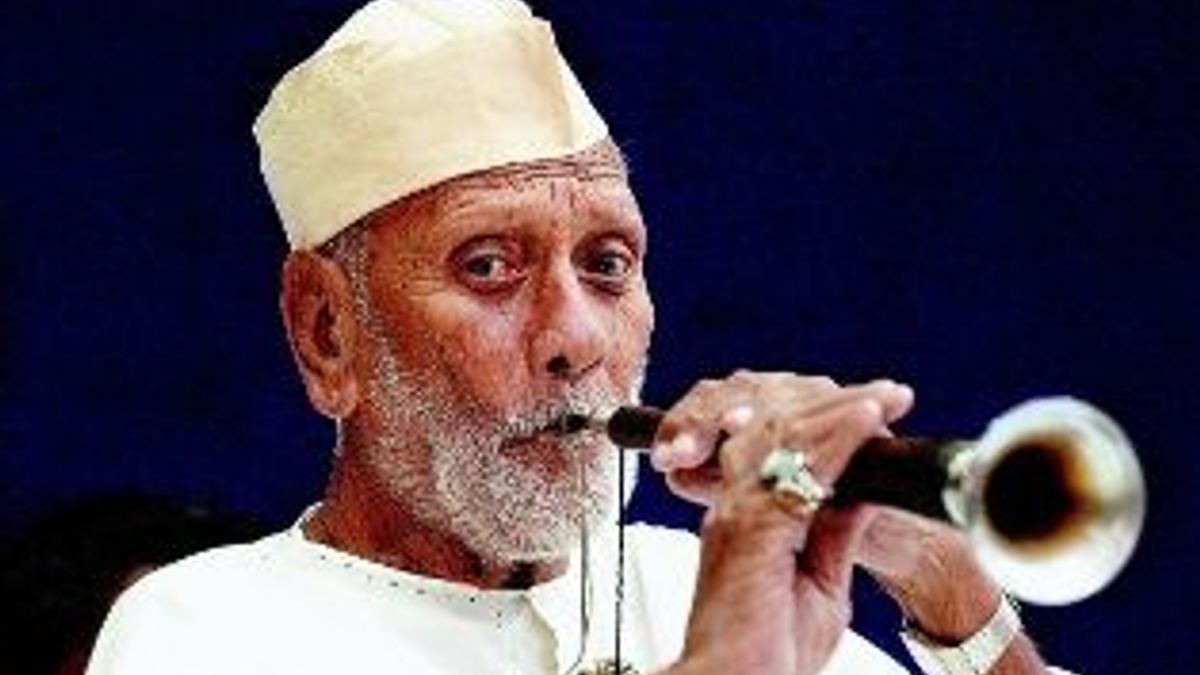In the heart of Indian classical music, there exists a name that resonates with unmatched virtuosity and divine harmony – Ustad Bismillah Khan. Often referred to as the “Shehnai Maestro,” Khan’s legacy transcends mere mastery of an instrument; it embodies a spiritual journey that captivates listeners, transcending cultural boundaries and touching the soul of humanity. His life, music, and philosophy continue to inspire generations, leaving an indelible mark on the world of music and beyond.
Born on March 21, 1916, in a family of traditional musicians in Bihar, India, Bismillah Khan’s destiny was intertwined with the soulful sounds of the shehnai from an early age. He belonged to the illustrious lineage of musicians, with his ancestors serving as court musicians in the princely state of Dumraon. Under the guidance of his uncle, Ali Baksh, a renowned shehnai player, young Bismillah began his journey into the realm of music, immersing himself in the rich heritage of Indian classical music.
Khan’s dedication and talent soon caught the attention of music connoisseurs, and his performances began to garner widespread acclaim. However, it was his association with the All India Radio (AIR) in 1937 that propelled him to national prominence. His mesmerizing renditions on the shehnai, coupled with his ability to infuse spirituality into every note, earned him a legion of admirers across the Indian subcontinent.
One cannot discuss Bismillah Khan without mentioning his legendary performance at the Red Fort on the eve of India’s independence on August 15, 1947. As the nation stood on the brink of a new era, Khan’s soul-stirring melodies echoed through the historic monument, symbolizing the spirit of unity and freedom. His rendition of the Raga Kafi, accompanied by the reverberating sound of the shehnai, left an indelible imprint on the collective consciousness of the Indian populace.
Beyond his virtuosity as a musician, Bismillah Khan embodied the essence of humility and spirituality. Despite achieving international acclaim and receiving numerous accolades, including the Bharat Ratna, India’s highest civilian honor, Khan remained grounded in his roots. He often attributed his success to the blessings of the divine and the guidance of his gurus, emphasizing the importance of humility and gratitude in the pursuit of excellence.
Moreover, Khan’s music transcended religious and cultural barriers, serving as a unifying force in a diverse and pluralistic society. Whether performing at Hindu temples, Sikh gurdwaras, or Muslim shrines, his melodies resonated with audiences of all faiths, fostering a sense of harmony and mutual respect. Through his music, Khan advocated for peace, love, and universal brotherhood, echoing the teachings of Sufi mystics who sought to unite humanity through the language of music.
Bismillah Khan’s influence extended far beyond the realm of music, leaving an enduring legacy that continues to inspire artists and aficionados worldwide. His unwavering dedication to his craft, coupled with his profound spirituality, serves as a guiding light for aspiring musicians, reminding them that true greatness lies not in fame or fortune but in the ability to touch hearts and uplift souls through the power of music.
In conclusion, Bismillah Khan’s life and music are a testament to the transformative power of art and the human spirit. Through his sheer talent, humility, and devotion, he transcended the boundaries of time and space, leaving behind a legacy that will continue to resonate for generations to come. As we celebrate his contributions to the world of music and beyond, let us remember the words of the maestro himself, “When I play, the gates of heaven open.”






